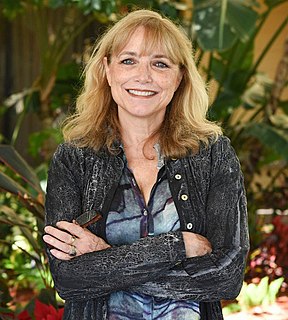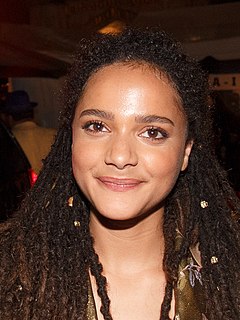A Quote by Paul Auster
I don't think that you can be prescriptive about anything, I mean, life is too complicated. Maybe there are novels where the author has not in the least thought about it in terms of film, which can be turned into good films.
Related Quotes
First, there has been a lot of interest in The Drive-in, but, alas, it hasn't actually come to fruition. Maybe soon. Don really got Bubba and I didn't think it could be a film. I thought it was too odd to make it to film. He asked me to do the screenplay, but I declined. I didn't see that it could be a screenplay but he wrote one and proved me wrong. He was always considerate about what I thought about the film and the story's presentation, but in the end, he's the director and he had to make decisions. All good ones.
I often find in the film world, that it's very self-referring. If you talk to someone about films, they talk about them in terms of other films - rather than as something that happened to them in their life. And I'm really keen to get back to film as a reference to real things, not necessarily to other films.
Lately I've been thinking about the idea that all novels are, at least in some way, about the process of writing a novel - that the construction of the book and the lineage of people constructing novels are always part of the story the author is telling. I think the equivalent for memoir should be that all memoirs are, in some way, about the process of memory. Memoirs are made out of a confusing, flawed act of creation.
I don't come from a film background. I haven't learned anything about films or film-making. But I have a thirst to know everything about my profession. I want to learn about cinematography, about editing, about music recordings, about post-production. So when people in the know talk, I willingly listen.
Maybe being good isn't about getting rid of anything. Maybe being good has to do with living in the mess in the frailty in the failures in the flaws. Maybe what I tried to get rid of is the goodest part of me. Think Passion. Think Age. Think Round. Maybe good is about developing the capacity to live fully inside everything. Our body is our country, the only city, the only village, the only every we will ever know.
There's something that happens where you go, if you're lucky, goodness me, from film to another film to another film. And you can sort of feel that if you step off that treadmill, it might all go horribly wrong and you might never be employed again, you know. And I suddenly thought that that's not necessarily the case. And I also thought we make drama as actors about people in the world and that if you are on that treadmill, you start making films about other films.



































